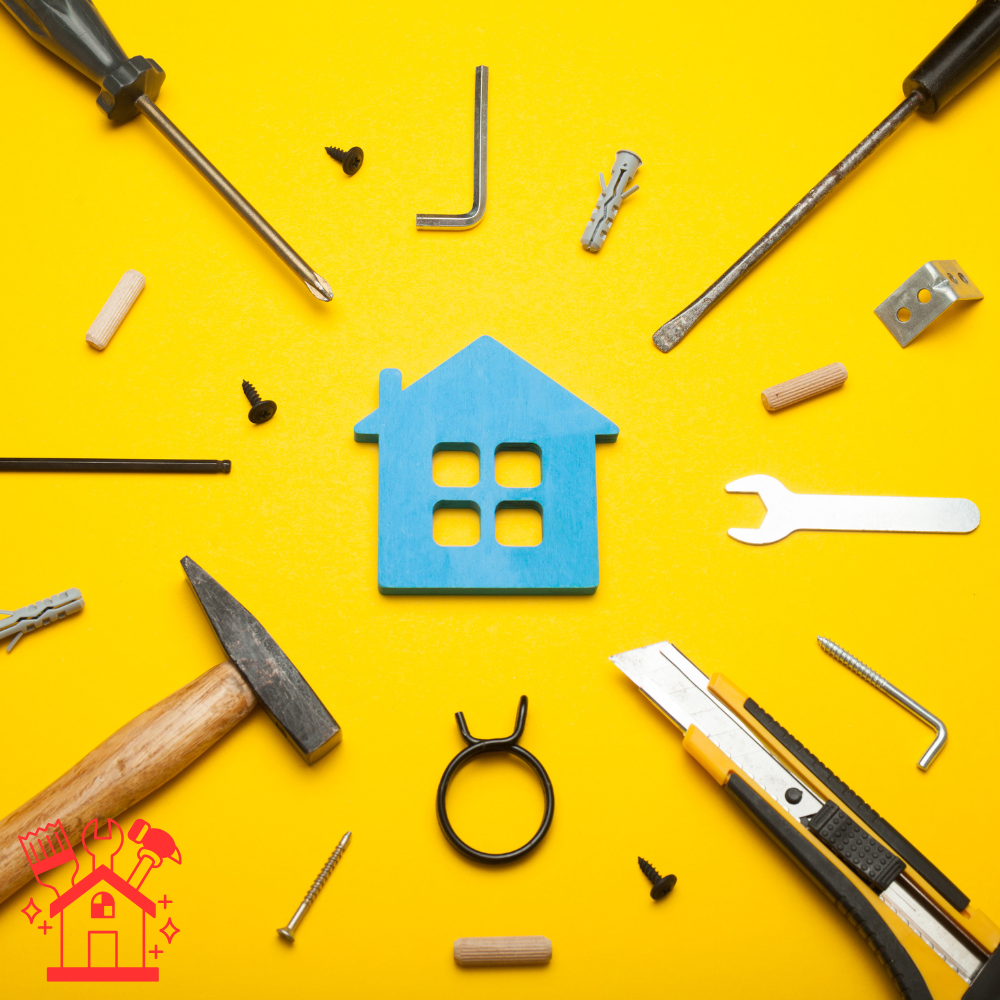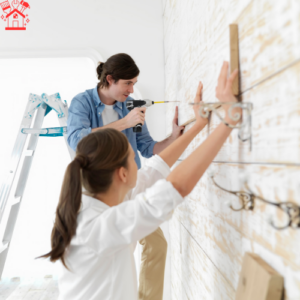Post Demo 1 – COPY
Understanding Roofing Repair Roofing repair involves fixing any damage or issues with your roof to prevent leaks and further damage to your home. It can


Home improvement projects can often start innocently, with a leaky faucet or a cracked tile catching your eye. However, the journey from minor repair to full-scale renovation can sometimes take unexpected turns. As a happy homeowner who has embarked on various home improvement endeavors, I understand the excitement and challenges that come with enhancing your living space.
In the realm of home improvement, finding a reliable contractor is key to a successful project. Unfortunately, not all contractors have your best interests at heart. Some unscrupulous individuals may see an opportunity to exploit homeowners, leading to unnecessary expenses and shoddy workmanship. It’s crucial to be vigilant and informed when hiring a contractor for your next project.
When I decided to revamp my kitchen last year, I encountered a contractor who seemed too good to be true. His promise of quick, affordable renovations was tempting, but I knew better than to rush into an agreement. Researching his credentials and checking references revealed a concerning history of unfinished projects and dissatisfied customers. This experience taught me the importance of due diligence when dealing with contractors.
For those considering a home improvement project, it’s essential to educate yourself on the common pitfalls and schemes that can occur. The Federal Trade Commission provides valuable resources on hiring contractors, offering guidance on how to protect yourself from scams. By arming yourself with knowledge and awareness, you can embark on your home improvement journey with confidence and peace of mind.
Learn more about hiring contractors to safeguard your home improvement projects.
 Home improvement projects can be exciting but navigating the landscape of potential scams is crucial. Handyman scams are unfortunately prevalent, with deceptive contractors preying on unsuspecting homeowners. One common red flag is contractors who demand large upfront payments before any work begins. Legitimate contractors typically ask for a deposit or partial payment, with the bulk due upon completion. Be wary of those asking for full payment upfront, as this is often a sign of a scam.
Home improvement projects can be exciting but navigating the landscape of potential scams is crucial. Handyman scams are unfortunately prevalent, with deceptive contractors preying on unsuspecting homeowners. One common red flag is contractors who demand large upfront payments before any work begins. Legitimate contractors typically ask for a deposit or partial payment, with the bulk due upon completion. Be wary of those asking for full payment upfront, as this is often a sign of a scam.
Another warning sign to watch out for is contractors who pressure you to make quick decisions or sign contracts without thoroughly reviewing them. Reputable contractors understand the importance of clear communication and transparency throughout the project. If you feel rushed or uncomfortable during the initial consultation, it may be best to seek another contractor.
Personal recommendations and references play a crucial role in avoiding scams. Scammers are less likely to provide references or have a positive track record, as their aim is to deceive and move on quickly. Instead of solely relying on the contractor’s references, consider seeking recommendations from trusted friends or family members who have had successful home improvement projects. This extra step can add a layer of security to your decision-making process.
To learn more about common scams and how to protect yourself, visit our guide on home improvement scams. Arm yourself with knowledge and awareness to safeguard your home and finances from fraudulent schemes.
After a natural disaster, the urgency to repair and rebuild can make homeowners vulnerable to fake contractors offering cheap and quick fixes. These opportunistic individuals often target distressed neighborhoods, promising immediate solutions at unbelievably low prices. However, the repairs provided may be subpar, putting your safety and property at risk. It’s essential to exercise caution and thoroughly vet any contractor before agreeing to post-disaster repairs.
I encountered this firsthand when my neighborhood was hit by a severe storm, and numerous homes required urgent repairs. Scammers posing as contractors began approaching residents with offers that seemed too good to be true. Thankfully, a neighbor who had previously fallen victim to a similar scam warned us about the signs to watch out for. By researching the reputation of each contractor and verifying their credentials, we were able to avoid potential scams and ensure that our repairs were handled by legitimate professionals.
One tactic used by fake contractors is to create a sense of urgency, claiming that immediate action is necessary to prevent further damage. While prompt repairs are essential after a disaster, it’s crucial not to rush into agreements without proper verification. Take the time to verify the contractor’s license, insurance, and past work to safeguard yourself from falling victim to post-disaster repair scams.
For more tips on navigating post-disaster repairs and avoiding scams, check out our comprehensive guide on protecting your home after a disaster. Stay informed and proactive to protect yourself and your property in times of crisis.

Home improvement projects can sometimes fall victim to the snowball effect, where initial repairs or renovations lead to unexpected additional work and costs. Unscrupulous contractors may exploit this situation by exaggerating the scope of the project or inventing new problems to inflate the bill. This tactic can catch homeowners off guard, resulting in financial strain and frustration. To avoid falling into this trap, it’s essential to establish clear communication and expectations with your contractor from the outset.
During a recent bathroom renovation, I experienced firsthand how the snowball effect can impact a home improvement project. What started as a simple tile replacement quickly escalated when the contractor claimed that underlying plumbing issues needed immediate attention. While it’s crucial to address genuine problems promptly, it’s equally important to verify the contractor’s claims and seek a second opinion if necessary. By staying informed and proactive, homeowners can prevent unnecessary and costly additions to their projects.
One strategy to combat the snowball effect is to have a detailed written contract outlining the project scope and costs. This document serves as a reference point to hold the contractor accountable and prevents any sudden changes or surprise expenses. Regular communication with your contractor and a thorough understanding of the project timeline can help mitigate the risk of unexpected developments and keep your home improvement project on track.
For more insights on navigating unexpected costs during home improvement projects, explore our guide on managing project scope changes. Empower yourself with knowledge to make informed decisions and protect your investment from unnecessary additions.
Ensuring the quality and trustworthiness of contractors is essential for a successful home improvement project. Before hiring a contractor, conduct thorough research to verify their credentials, reputation, and work experience. Requesting references from previous clients can provide valuable insights into the contractor’s professionalism and the quality of their work. Additionally, checking online reviews and ratings can help you gauge the contractor’s reliability and customer satisfaction.
When vetting contractors, be wary of those who offer significantly lower prices than their competitors. While cost is a factor to consider, unusually low bids may indicate substandard materials or workmanship, leading to potential issues down the line. It’s important to strike a balance between affordability and quality to ensure a positive home improvement experience.
Before finalizing any agreements, insist on a detailed written contract that outlines the project scope, timeline, costs, and payment schedule. A contract serves as a legal document that protects both you and the contractor, clarifying expectations and preventing misunderstandings. If a contractor is hesitant to sign a contract or provides vague details, consider it a red flag and proceed with caution.
To learn more about safeguarding your home improvement projects and ensuring trustworthy contractors, visit our guide on verifying contractor credentials. Equip yourself with the knowledge and tools needed to make informed decisions and protect your investment in your home.
 Protecting older adults from home improvement scams is crucial, as scammers often target this demographic due to perceived vulnerabilities. Older homeowners may be seen as more trusting, financially stable, and potentially less tech-savvy, making them prime targets for fraudulent contractors. To safeguard against scams, older adults should stay informed, ask for recommendations from trusted sources, and conduct thorough research before hiring any contractor.
Protecting older adults from home improvement scams is crucial, as scammers often target this demographic due to perceived vulnerabilities. Older homeowners may be seen as more trusting, financially stable, and potentially less tech-savvy, making them prime targets for fraudulent contractors. To safeguard against scams, older adults should stay informed, ask for recommendations from trusted sources, and conduct thorough research before hiring any contractor.
One common tactic used by scammers targeting older adults is to create a sense of urgency or play on emotions to pressure them into making hasty decisions. It’s essential for seniors to take their time, ask questions, and seek a second opinion when faced with high-pressure sales tactics. By staying vigilant and informed, older adults can protect themselves from falling victim to deceptive schemes.
Family members and caregivers play a crucial role in protecting older adults from home improvement fraud. Encourage open communication, offer assistance with contractor research, and provide guidance on recognizing warning signs of scams. By working together, families can create a supportive network that empowers older adults to make informed decisions about their home improvement projects.
For additional tips on safeguarding older adults from home improvement scams and ensuring their well-being, explore our guide on protecting seniors from contractor fraud. By staying proactive and educated, older adults can enjoy the benefits of home improvement projects without falling prey to dishonest practices.
 In the unfortunate event that you have fallen victim to a home improvement scam, it’s essential to take immediate action to protect your rights and seek recourse. Start by documenting all communications, contracts, and transactions related to the scam. This information can serve as crucial evidence if you need to pursue legal action or file a complaint against the fraudulent contractor.
In the unfortunate event that you have fallen victim to a home improvement scam, it’s essential to take immediate action to protect your rights and seek recourse. Start by documenting all communications, contracts, and transactions related to the scam. This information can serve as crucial evidence if you need to pursue legal action or file a complaint against the fraudulent contractor.
If you believe you have been scammed by a contractor, consider reaching out to local consumer protection agencies or your state attorney general’s office for assistance. These organizations can provide guidance on your rights as a consumer and may be able to help mediate disputes or investigate fraudulent practices. Additionally, reporting the scam can help prevent others from falling victim to the same scheme.
Legal action may be necessary to recover damages or hold the fraudulent contractor accountable for their actions. Consult with a reputable attorney who specializes in consumer protection or contract law to explore your options and determine the best course of action. By seeking legal advice, you can better understand your rights and pursue justice for any financial losses or damages incurred due to the scam.
For more information on taking legal action and seeking assistance after a home improvement scam, refer to our comprehensive guide on recovering from contractor fraud. Empower yourself with the knowledge and resources needed to navigate the aftermath of a scam and protect your interests.
Ready to transform your home into the space you’ve always dreamed of? Contact Us today to learn more about our Home Improvement services or to request a free estimate. Our friendly and knowledgeable team is here to answer your questions and guide you through every step of the process.
Don’t wait to start your home transformation journey. Request a Free Estimate Today and take the first step toward a more beautiful, functional, and valuable home!
Be cautious of contractors asking for large upfront payments without starting any work. Legitimate professionals generally require a small deposit with the rest due upon completion. Additionally, if a contractor pressures you to make quick decisions without thorough discussion, this could be a red flag.
Research a contractor's credentials, check references from previous clients, and look into online reviews and ratings. Request a detailed written contract outlining the project scope, timeline, and costs, which helps ensure transparency and accountability.
To prevent escalating costs, start with a detailed contract outlining the project's scope. Have open communication with the contractor, and if unexpected issues arise, seek a second opinion before agreeing to additional work.
Encourage seniors to ask for recommendations and conduct thorough research before hiring contractors. They should avoid high-pressure sales tactics and take time to make informed decisions. Family members can support by helping with contractor research and discussing potential red flags.
Document all communications, contracts, and transactions, and reach out to local consumer protection agencies or seek legal advice. Reporting the scam can help others avoid similar situations, while legal actions may help recover losses.
Verify each contractor’s credentials and credentials, check their insurance and license, and research their past work. Avoid those who create urgency with unrealistically low bids, as these may not guarantee quality repairs.
The Federal Trade Commission provides valuable guidance on hiring contractors and protecting yourself from scams. Consulting these resources can help you make informed decisions and secure quality services for your home improvement needs.
We pride ourselves on quality craftsmanship and customer satisfaction across all locations.
Understanding Roofing Repair Roofing repair involves fixing any damage or issues with your roof to prevent leaks and further damage to your home. It can

Share This Post Table of Contents Understanding Roofing Repair Service Roofing repair involves fixing any damage or issues with your roof to prevent leaks and
